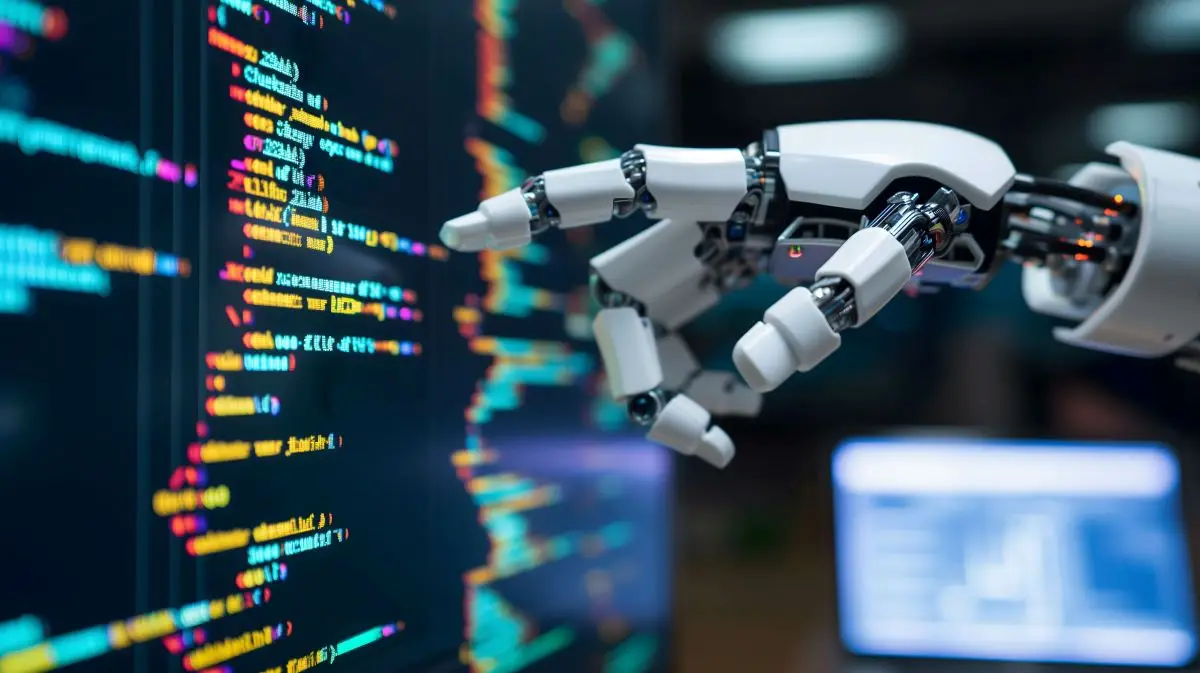Revolutionary development: How AI is changing software test automation

The exponential development of software also leads to an exponential increase in complexity and costs. This can be impressively observed in the development of video games. While the development costs for GTA 5 (2013) amounted to 200 million dollars, the costs for GTA 6 (2025) have already risen to over 2 billion dollars. Obviously Moore’s Law also applies here, but in terms of costs: a doubling roughly every two years!
One of the main cost drivers is quality. Software quality is largely dependent on a good test system, which is why professional manufacturers have been setting up highly automated test factories for years.
The next revolutionary step: AI-supported test methods and software
Thanks to artificial intelligence (AI), the next revolutionary step is now imminent: autonomous, AI-driven test methods and software. AI can recognise patterns in large amounts of data and automatically generate and optimise test cases from these findings, which significantly increases efficiency and accuracy. Another area of application is automatic error detection: AI systems can recognise and identify anomalies and errors that human testers can overlook. This leads to faster and more precise troubleshooting.
More than just detection: optimization and troubleshooting with AI
However, AI test software goes beyond mere error detection. It actively helps to eliminate vulnerabilities and optimises the code through direct interventions. AI-supported test automation tools can also simulate user behaviour in order to test user-friendliness and performance under realistic conditions. Machine learning allows these systems to continuously learn and improve their testing strategies, resulting in increasingly accurate and comprehensive test coverage.
Simplified creation and maintenance of test scripts
The creation and maintenance of test scripts is also made easier by the use of AI, as intelligent algorithms can automatically make adjustments when the application changes. AI-based test software also supports performance tuning and improves documentation through professional test methods.
Deeper insights through AI-supported analysis
An evolutionary step for software development
AI in software test automation is a logical evolutionary step and will be indispensable for professional software development in just a few years. This applies not only to large software houses, but also to small companies and software projects. AI has the wonderful characteristic that it hardly needs any economies of scale to be profitable.
The need for quality assurance
Software projects often neglect the aspect of testing. However, this is urgently required for quality assurance. AI offers numerous possibilities for this.
The future: convergence of AI-based code development and testing
A look into the future shows that AI-based code development and AI-based testing will converge, potentially reducing the number of coders required. Especially in areas where low-code or no-code methods are used, AI testing software will be indispensable. The designer of the software themselves will no longer be able to test their product and will be reliant on independent AI testing software, which should be built into the no/low-code tools.
Governance and Compliance
This development requires additional governance to ensure that the software meets a company’s general compliance rules and legal requirements, which are also growing exponentially. In addition, the independence of AI developers and AI testers must be guaranteed to avoid conflicts of interest.